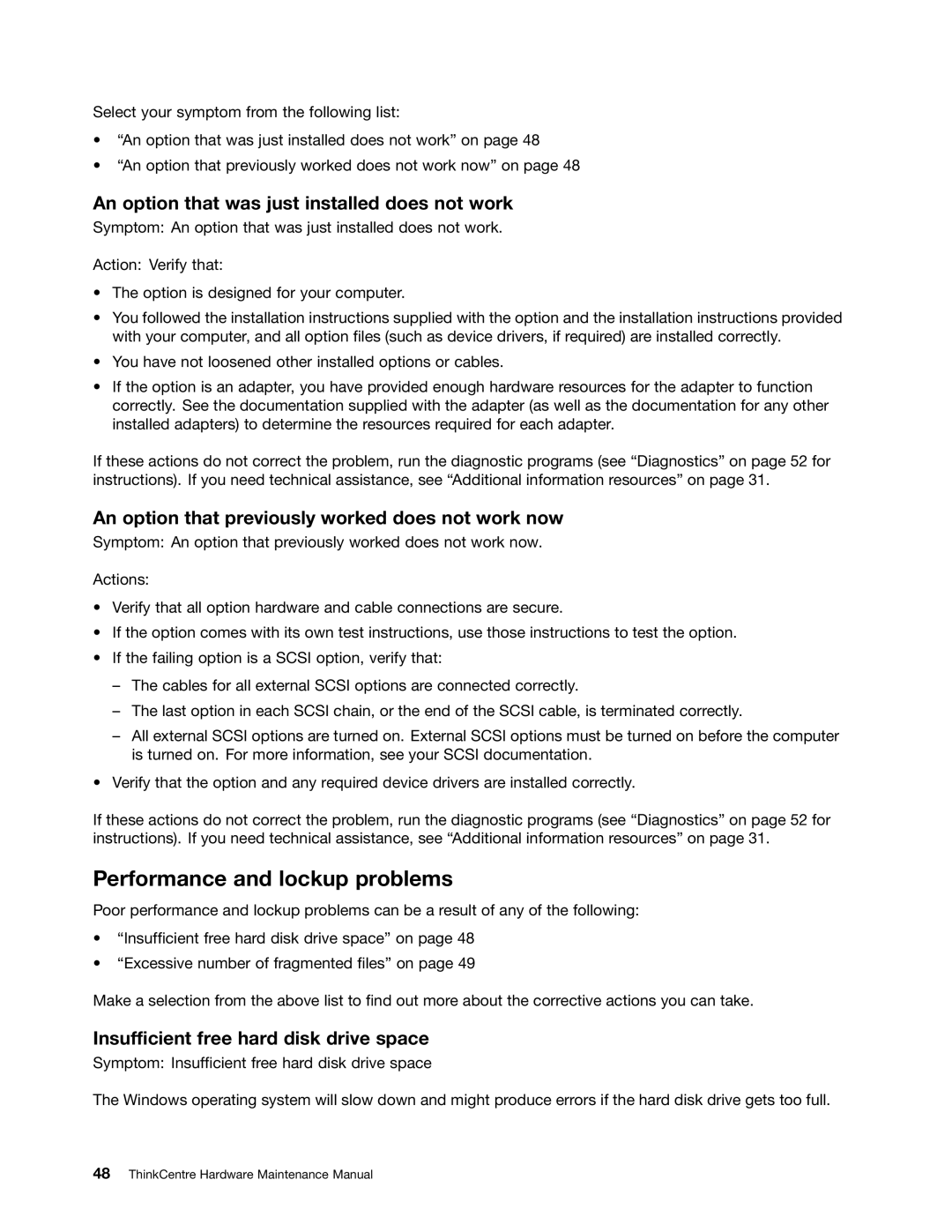Select your symptom from the following list:
•“An option that was just installed does not work” on page 48
•“An option that previously worked does not work now” on page 48
An option that was just installed does not work
Symptom: An option that was just installed does not work.
Action: Verify that:
•The option is designed for your computer.
•You followed the installation instructions supplied with the option and the installation instructions provided with your computer, and all option files (such as device drivers, if required) are installed correctly.
•You have not loosened other installed options or cables.
•If the option is an adapter, you have provided enough hardware resources for the adapter to function correctly. See the documentation supplied with the adapter (as well as the documentation for any other installed adapters) to determine the resources required for each adapter.
If these actions do not correct the problem, run the diagnostic programs (see “Diagnostics” on page 52 for instructions). If you need technical assistance, see “Additional information resources” on page 31.
An option that previously worked does not work now
Symptom: An option that previously worked does not work now.
Actions:
•Verify that all option hardware and cable connections are secure.
•If the option comes with its own test instructions, use those instructions to test the option.
•If the failing option is a SCSI option, verify that:
–The cables for all external SCSI options are connected correctly.
–The last option in each SCSI chain, or the end of the SCSI cable, is terminated correctly.
–All external SCSI options are turned on. External SCSI options must be turned on before the computer is turned on. For more information, see your SCSI documentation.
•Verify that the option and any required device drivers are installed correctly.
If these actions do not correct the problem, run the diagnostic programs (see “Diagnostics” on page 52 for instructions). If you need technical assistance, see “Additional information resources” on page 31.
Performance and lockup problems
Poor performance and lockup problems can be a result of any of the following:
•“Insufficient free hard disk drive space” on page 48
•“Excessive number of fragmented files” on page 49
Make a selection from the above list to find out more about the corrective actions you can take.
Insufficient free hard disk drive space
Symptom: Insufficient free hard disk drive space
The Windows operating system will slow down and might produce errors if the hard disk drive gets too full.
